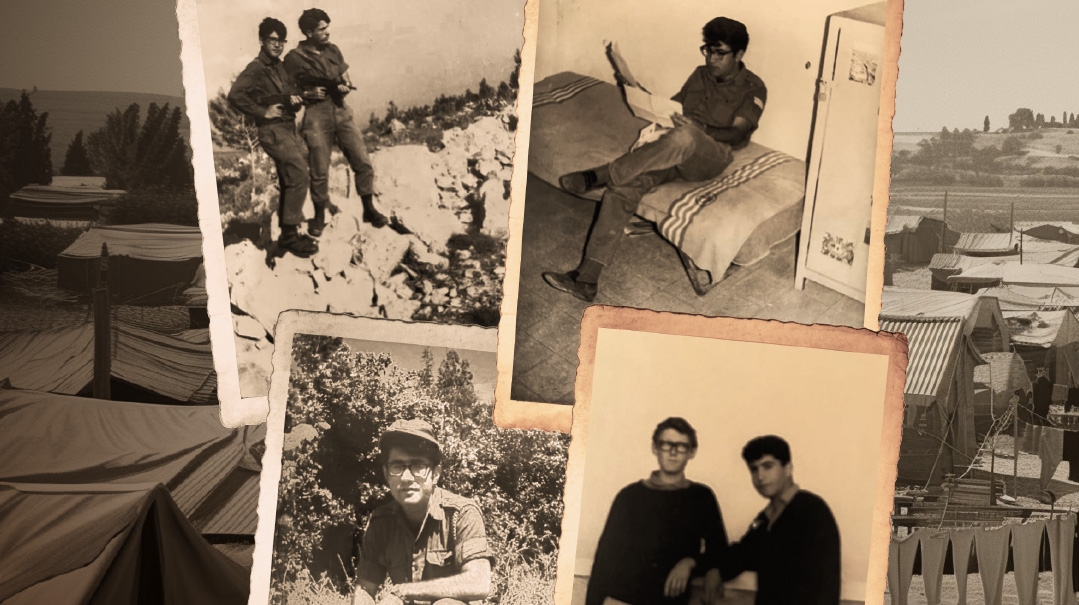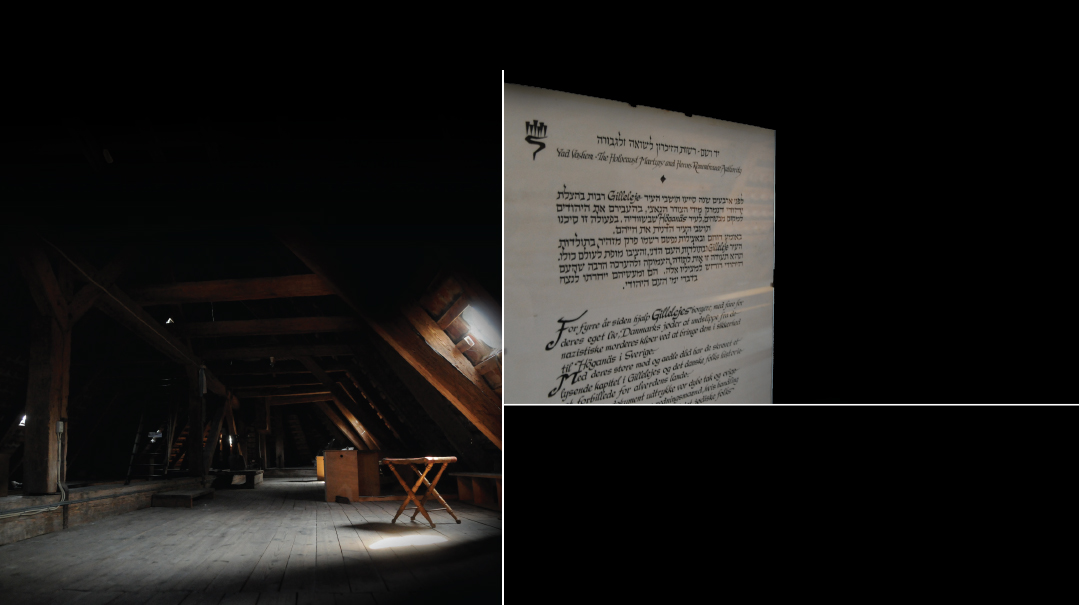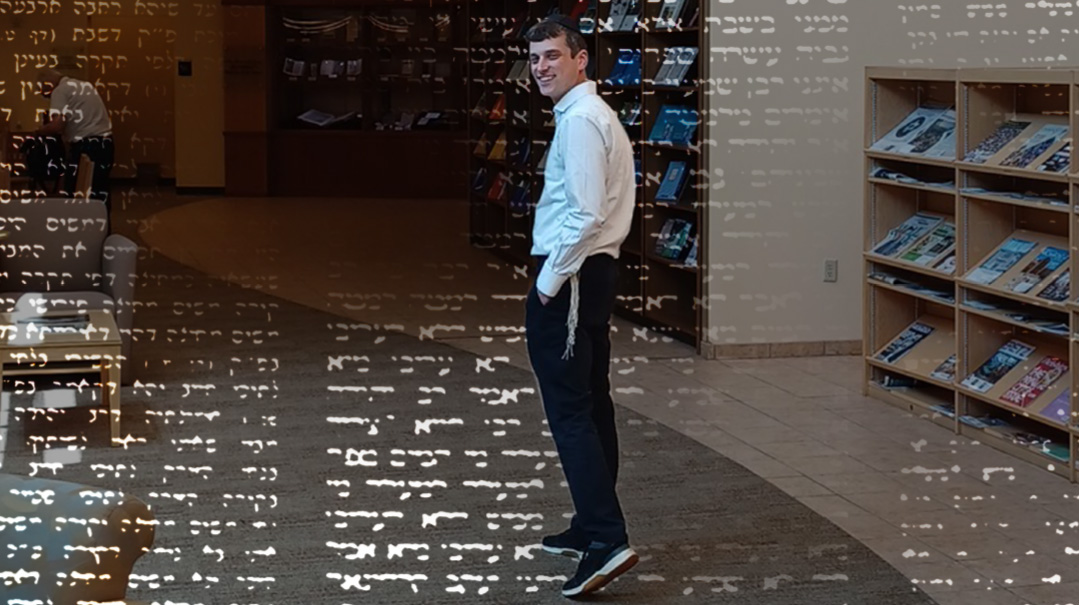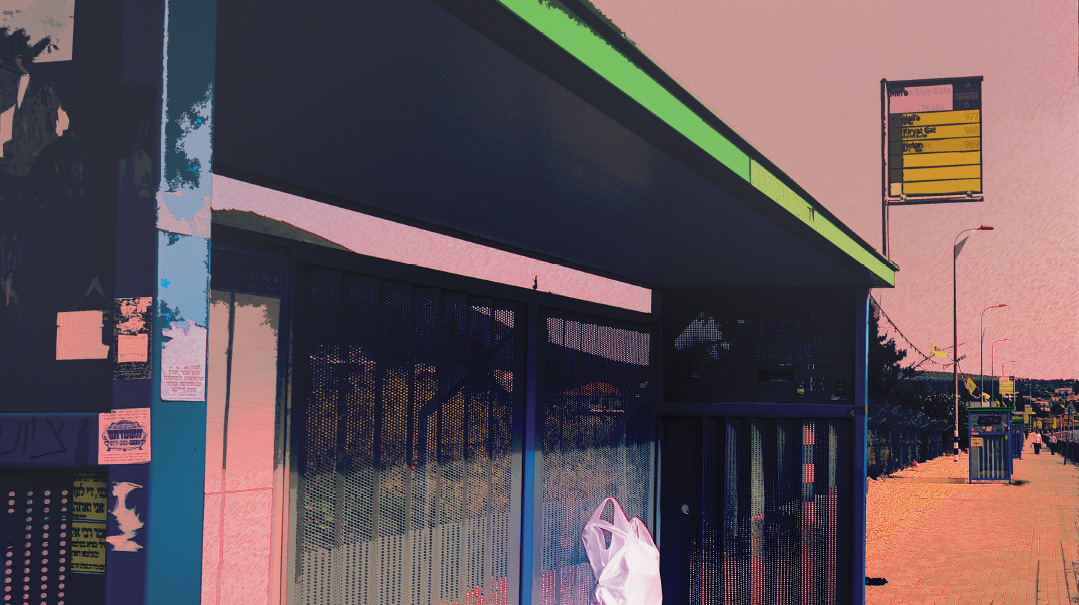What My Teacher Taught Me

Is there a rebbi or morah who gave you the lesson of a lifetime? Readers share those life-altering interactions

You Can Do It
Rabbi Yaakov Wehl was the “frum” rebbi from Boro Park in a day school in Long Island, New York. He tried to open the eyes of the teens in his care to a greater vista of what Torah learning and Torah observance could be.
Every Purim, he and his rebbetzin hosted dozens of Long Island high school boys in their Boro Park home, where he made a real impression of how a Purim seudah could be a place for growth. Each year, he led us in singing a song he wrote:
“I want to be a ben Torah. I want to be a ben Toraaaaaah. Anyone who wants to be can be a ben Torah.”
That’s it. Those were all the words.
My first Purim after high school, I was in Yeshiva University. Still, I made my way back to Rabbi Wehl’s house for the seudah. Rebbi started his song, but then he said, “This year, we have people here who are already a ben Torah. So this year, we’ll change the song.” And he led us in singing, “I want to know Shas. I want to know Shaaaaaas. Anyone who wants to can know Shas.”
That’s the first time the thought entered my head: I could learn the whole Talmud Bavli.
About two decades later, I mentioned this story at my first siyum on Shas.
I plan to mention it again in a few months, at my second siyum on Shas. Because anyone who wants to can know Shas. Rebbi said so.
Rabbi Mordechai Soskil
Baltimore, Maryland
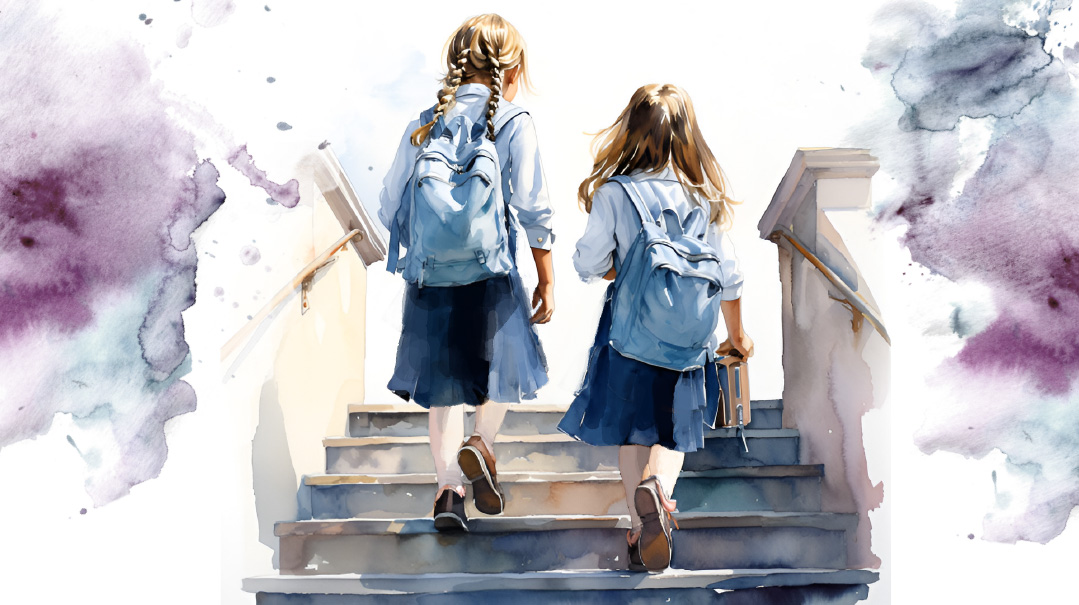
Words that Warm
IT
was a bitterly cold January day, and little girls, bigger girls, and staff were flooding the stairs of Bais Yaakov of Queens, eager to get home after a happy but long day at school. All the familiar sounds accompanied the moment: the endearing goodbyes of sweet little ones, the undying promises, “Talk to you later,” of the bigger ones, and of course, the good-natured voice of principal Rabbi Moshe Neuman, reminding the children to be careful on the ice and zip their coats against the frigid temperatures. No cozy warm office and comfortable chair for the indefatigable Rabbi Neuman; come rain or shine or the Van Wyck Expressway, his cheerful greetings would always be there to welcome everyone to school and usher them home.
And then he was addressing me.
“Mrs. Reit, where is your coat?!”
I had been running late, as always — little kids at home and a husband in residency are not conducive to timeliness — and had dashed out without one. I was never cold anyway. Ask anyone under 30 with four kids if they’re ever cold.
“How can I tell the kids to wear their coats, if you’re not wearing one?” he continued, with his perpetual smile.
In that moment, I learned something that 16 years of excellent schooling did not teach me.
Chinuch is not only about the brilliance, the patience, the delivery. It’s also about setting the example. It’s the glue. Without it, there’s a good chance nothing will stick.
It’s been over a year since Rabbi Neuman’s petirah, and many more since he asked me to look around for a nice apartment for him in Eretz Yisrael. He wasn’t my teacher or principal, but his timeless brilliance lives on in the thousands of students and hundreds of teachers he greeted every day for over 50 years with his trademark smile and sense of humor.
Michal Reit
Ramat Beit Shemesh, Israel
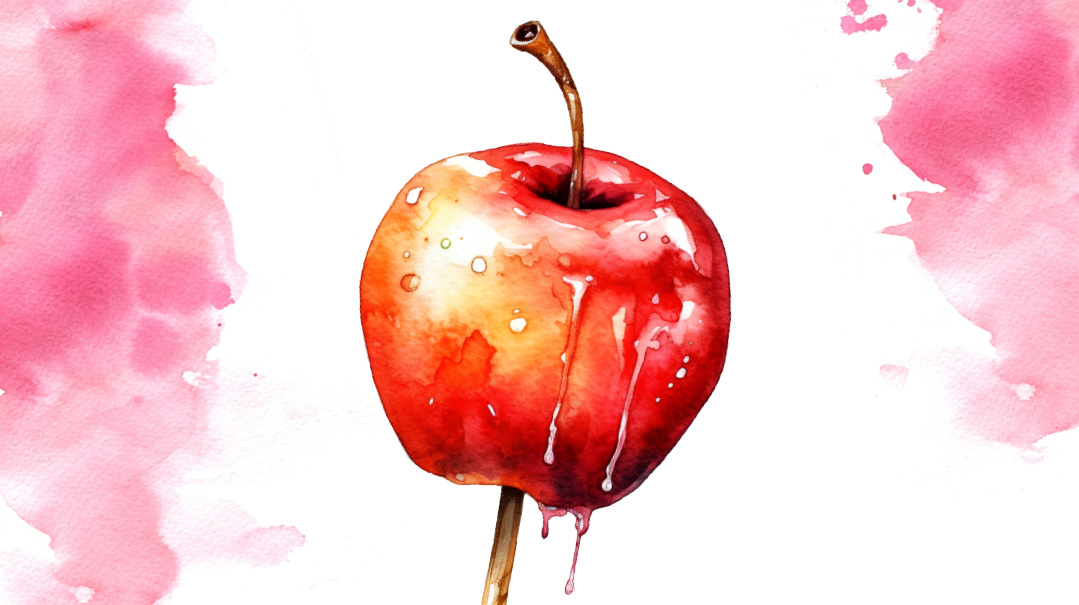
Eye on the Prize
MYfourth grade year with Morah Miriam Mandelbaum (now Gardner) in Bais Yaakov of Queens was magical. Fresh out of seminary, she made every day a joyous experience. Songs, games, and colorful sheets enhanced the clarity of her lessons and the wealth of material she poured into our minds.
One of the games Morah Mandelbaum used for chazarah of Chumash milim was to hold up a strip of construction paper with a word on it. The girl who translated it correctly kept the “card,” and about once a month, Morah would give prizes to girls who had ten cards.
One day, Morah Mandelbaum announced it was time for girls with ten cards to turn them in. I was sure I did, but somehow I found only six. I always put them in the same folder — where could the last four have gone?
Morah assured me that whenever I found them, I could turn them in for a prize. Meanwhile, several of my friends handed in their ten cards, and the next day, Morah brought them candy apples. Kosher candy apples! From Boro Park! I was so disappointed.
About a week later, I opened my folder and saw my four missing milim cards. They had turned sideways and slipped completely into the pocket of the folder, so they weren’t visible when I’d opened it. I knew it was too late for the special prize, but I told Morah Mandelbaum anyway.
Our annual Purim routine included driving to Brooklyn to give mishloach manos to my brothers’ rebbeim. That year, my father encouraged me to ask my teacher for her address, so we could bring her mishloach manos as well.
On Purim day, we went to my brothers’ rebbeim, and from there to Morah Mandelbaum’s house. I gave her my mishloach manos, and she gave me the one she had prepared just for me. Complete with a candy apple.
Today I am a seventh grade morah, and that story is never far from my mind. I hope my students feel I am looking out for each one of them as an individual, the way Morah Mandelbaum looked out for me.
Chaviva Pfeiffer
Kew Gardens, New York

Follow My Lead
I
met Noam on a warm summer day in Seattle, Washington, while I was on a SEED program there in 2008. Noam was a nice Modern Orthodox kid who had lost his father a few years earlier. His life wasn’t the easiest. We established a relationship, and I kept up with him over the year. The following summer, Noam’s mother asked me to surprise him by flying in for his bar mitzvah in Elul.
The only convenient flight to Seattle from Baltimore, where I was learning in Ner Yisroel, was one with a short stopover in Atlanta. There would hopefully be enough time to make the connection, but the Atlanta airport is huge, and I would need to take the SkyTrain to a different terminal for my second flight.
At the time, I learned one night a week with Rabbi Boruch Neuberger, the s’gan menahel, and I mentioned my upcoming trip to him.
Thursday came, and I was off to the airport. The first flight ran a few minutes late, and as we landed in Atlanta, I realized I had under 30 minutes to make my connection. As I waited anxiously to get my bags from the overhead bin, my phone rang.
Rabbi Neuberger was on the line.
“Moshe Dov, I’ve been tracking your flight. Your new gate is B52, and this is how you will get there,” he said, detailing my next steps.
With that information, I ran through the airport. I made my Seattle flight, and that evening, Noam experienced the surprise of a lifetime.
Fast forward 15 years. Rabbi Boruch Neuberger is now a menahel in Ner Yisroel. Noam is an illustrious member of Ner Yisroel’s Kollel Avodas Levi. And I, a rebbi in Yeshiva K’tana of Waterbury, still hold onto Rabbi Neuberger’s lesson.
A rebbi isn’t only someone who teaches and connects with his talmidim. A rebbi is someone who follows the progress of every talmid, every step of the way, guiding him to his destination.
Rabbi Moshe Dov Heber
Waterbury, Connecticut
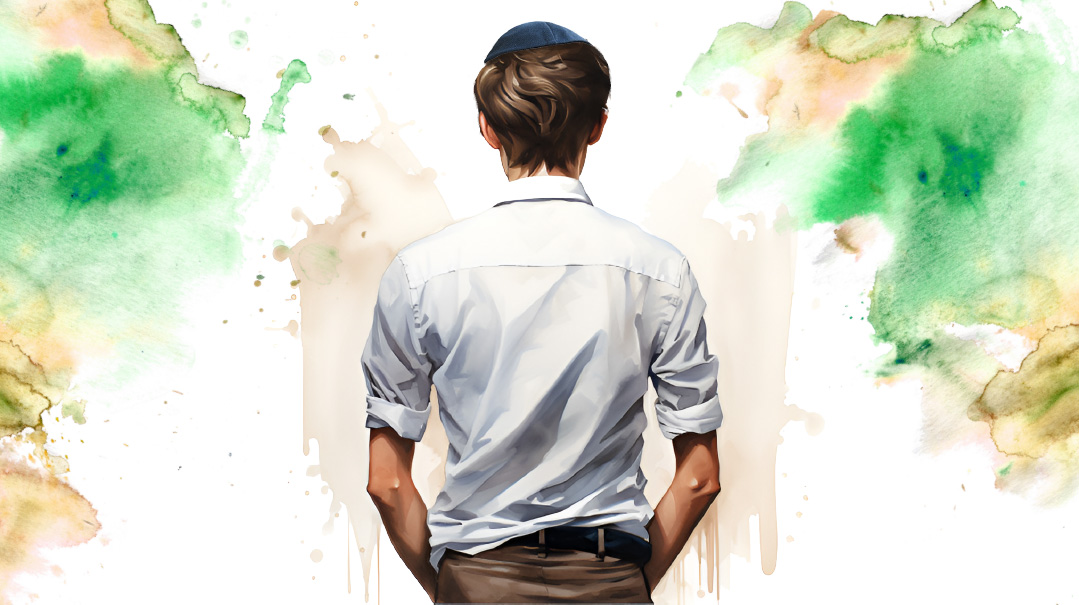
Suspended Sentence
E
ighth grade was a hard year for me. Due to financial difficulties, my family had moved from where we’d lived near my friends to a house outside South Florida’s Jewish community. I attended a co-ed day school with some very wealthy students, but I wasn’t as privileged as my classmates and I acted out a lot in school. I was suspended numerous times that year.
In May, my father received a job offer, and we moved to Baltimore, Maryland. Switching from my community day school to the Talmudical Academy of Baltimore, where half the eighth grade class wore hats to Shacharis, was quite the culture shock! One of my first days at TA, I decided to redecorate the bathroom. I had fun draping toilet paper all over the stalls — until I was caught by the interim principal, Rabbi Shalom Weingot ztz”l.
Rabbi Weingot brought me to his office, where I expected to get suspended again, as in my previous school. I don’t recall his exact words, but I do remember they were said with a caring and warmth I had not seen previously. He acknowledged that this transition must be very hard. He said he understood my actions, and he reminded me that his office was open whenever I needed — and that I should please refrain from behaving like this again. I was consoled and supported, not suspended.
Today I work as the director of Yeshiva University’s James Striar School of Jewish Studies, a recruiter for YU’s Undergraduate Torah Studies, and the director of NCSY Camp Sports. This incident with Rabbi Weingot inspired me to pursue a career in chinuch and kiruv, and I always keep his lesson in mind: Remember the backstory before you deal with the current situation.
In 2016, about 30 years after I graduated elementary school, I was honored to invite Rabbi Weingot to a Siyum Mishnayos I made at NCSY Camp Sports.
“Rabbi Weingot, I know I was a difficult student, and I want to give you nachas for the effort you put into my hatzlachah,” I said when I spoke. “I probably wouldn’t be here, inspiring others, if not for your trust in me.” I then turned to the campers and continued, “We look forward to you boys bringing us nachas, when we watch you teach others.”
Rabbi Weingot passed away this summer. At the shivah house, I shared the story of my non-suspension with the aveilim, and we concluded that I was one of his first discipline cases. He became the principal of TA the following year, when I entered ninth grade.
It only occurred to me at Rabbi Weingot’s shivah house that while I was never a perfect student, I never got suspended again.
Rabbi Jon Green
Far Rockaway, New York
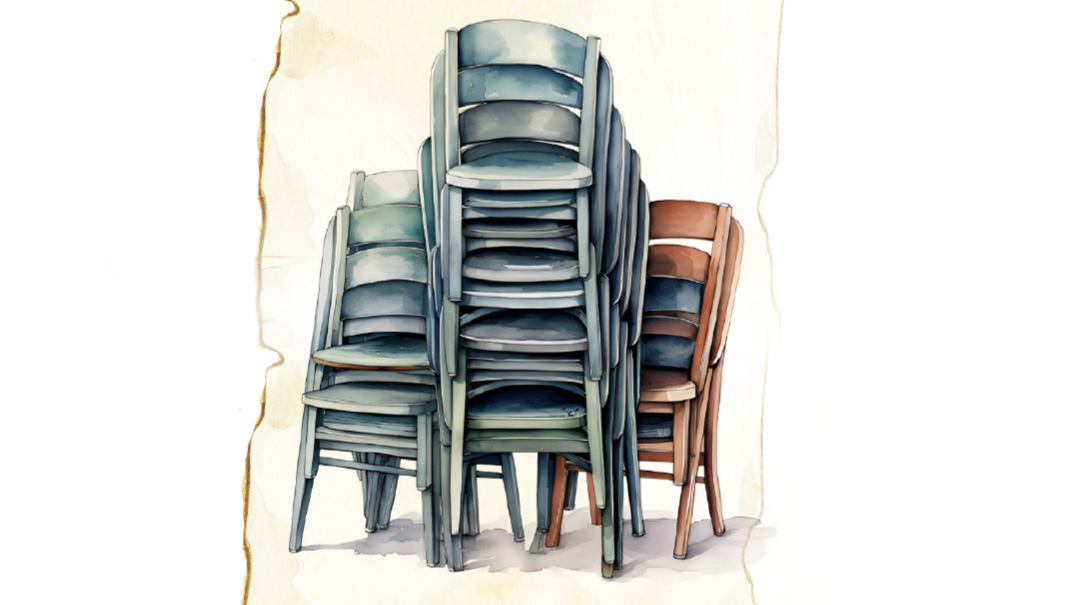
Sharing is Caring
Thirty years ago, I was a counselor in Camp Agudah in the Catskill Mountains. We were on our way to the gym for night activity, and most of us were schlepping chairs to sit on. Rabbi Simcha Kaufman, the head counselor there for close to 50 years, always told us to “think about yenem!” so I was carrying two.
Rabbi Kaufman saw me approaching with the chairs.
“Wait a minute,” he said.
He gathered a few boys, pointed at me, and said, “If you carry one chair for yourself, you’re just a schlepper. But if you carry two chairs and give one to another guy, you’re a tzaddik.”
Aside from making me feel like a million bucks, the lesson Rabbi Kaufman taught us that day about extending yourself has literally changed the way I conduct myself on a daily basis. When I think back to that episode, it warms my heart — and his comment is the impetus for me to continue to keep others in mind even as I do things for myself.
Shiya Shillet
Far Rockaway, New York

Family First
T
here are two girls’ high schools in Chicago. Of course I wanted to go where most of my friends were going, but my parents felt the other school, Hanna Sacks Bais Yaakov, was best for me. It was a tough decision for them, and a tough adjustment for me. My mother, Mrs. Rivka Eichenstein, is a longtime teacher in Hanna Sacks, and I wasn’t sure how I felt about being her student.
My mother has a dynamic personality. Her love for teaching history and Jewish History is evident. She teaches everyone in the school, and everyone feels her passion for her classes and for the hashkafah she instills in every lesson. She also serves as the twelfth-grade mechaneches.
I didn’t have my mother in ninth grade, but starting tenth grade I had her every year. I remember taking my first test in her class, and it was hard. What made it especially difficult was that it was a test from my mother. I was frustrated and annoyed.
That night, at supper, I asked my mother if she graded my test.
She looked me in the eyes and said, “I graded your test first because you are my daughter, and I love you first.”
At that moment, I knew — I was her daughter first and her student second. For the rest of high school, I never forgot that.
Chavi Hoberman
Jackson, New Jersey
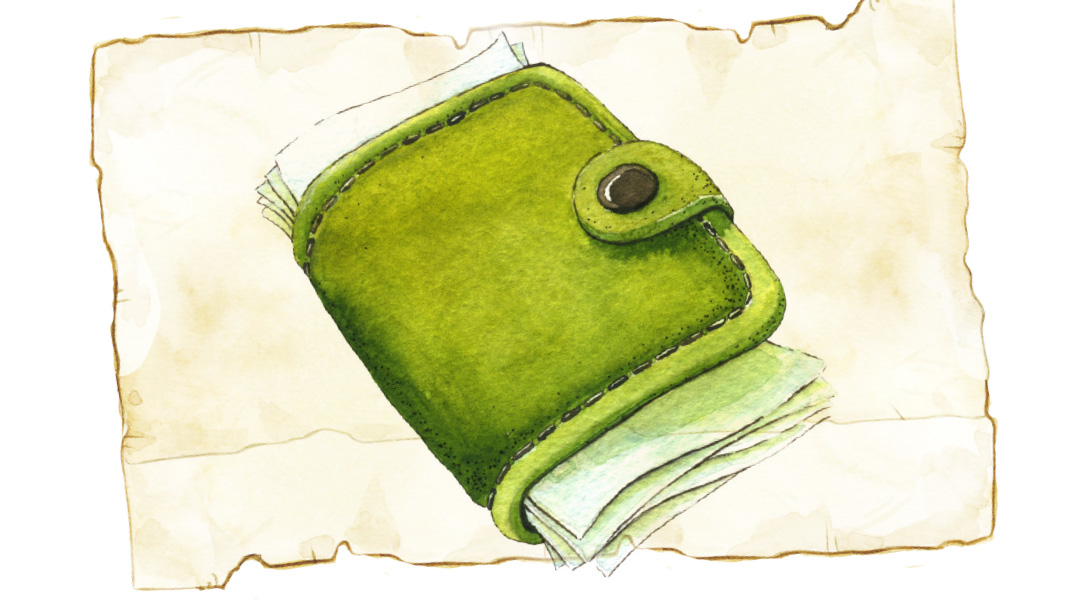
Give and Get
MY friend walked out of the office of our rosh yeshivah, Rav Yankel Bistritz ztz”l, with a surprised look on his face.
“What happened?” I asked, knowing there must be some chiddush.
He told me that Rabbi Bistritz, Rosh Yeshivah of Yeshiva Gedola of Montreal, had called him into his office to ask him where he gets spending money from. When he replied evasively, Rebbi warned him not to borrow money.
“You borrow a dollar here and a dollar there and forget, and it’s not worth coming back to this world to pay up forgotten debts,” Rebbi said.
Then he told my friend he would give him a monthly stipend to supplement his needs. Rebbi and my friend proceeded to calculate how much spending money a bochur needs: some soda, sending shirts to the cleaners (this was before the non-iron revolution), and other basics.
Then Rebbi added, “Buy yourself a Danish once in a while — and buy one for someone else, too.”
Rebbi understood the need to give, and he cared enough to give a bochur on the receiving end the ability to experience the pleasure of giving.
Odom Silverstein
Lakewood, New Jersey
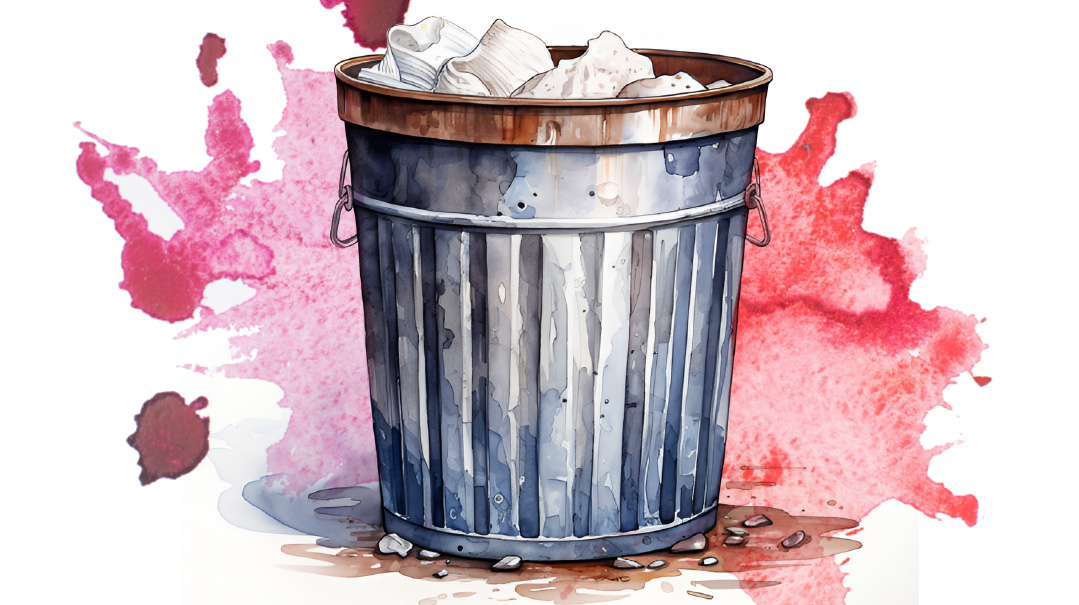
Pick Me Up
I
remember the first time our principal Rabbi Yaakov Bender got up at an assembly at Yeshiva Darchei Torah in Far Rockaway, New York, and discussed trash cans. It was the late ’80s, and I was a young elementary school student.
Rabbi Bender explained that the yeshivah had gotten larger-than-standard trash cans, and he wondered why even so, there was so much trash strewn about in the vicinity of the cans.
He described seeing a boy walk by an overflowing can and mindlessly tossing his snack bag or pudding on top of the hefty heap, only for it to roll onto the floor or drip over the side. But it takes five seconds to preempt the disaster, he told us: Push down the overflow with your foot to condense it, as the “fluff” of paper towels often makes up the majority of the trash volume.
Next, Rabbi Bender demonstrated this in animated motions, with a real trash can.
“No, it isn’t only for Javier [the custodian] to do this,” he told us. “It’s not beneath me, and it’s not beneath you. Aderaba, we all take achrayus for our yeshivah in all aspects.”
This performance repeated itself in various versions at assemblies throughout my years in yeshivah.
Watching Rabbi Bender so graphically involved with the yeshivah trash of all things made a lasting impression. I spent many years lost, wandering on what was not the derech haTorah, to be kind. However, no matter where I was holding, when I found myself in a yeshivah or makom Torah or tefillah, I was bothered to see overflowing trash — and I always found myself picking up what was on the floor, pushing down what was in the garbage, or taking out the trash.
Perhaps it was this minimum kesher to derech eretz, embedded in me by Rabbi Bender’s hands-on demonstration, that years later gave me another chance to live a Torah life. The Ribbono shel Olam, in His infinite kindness, picked me up: mei’ashpos yarim evyon.
Zalmy Sussman
Cherry Hill, New Jersey
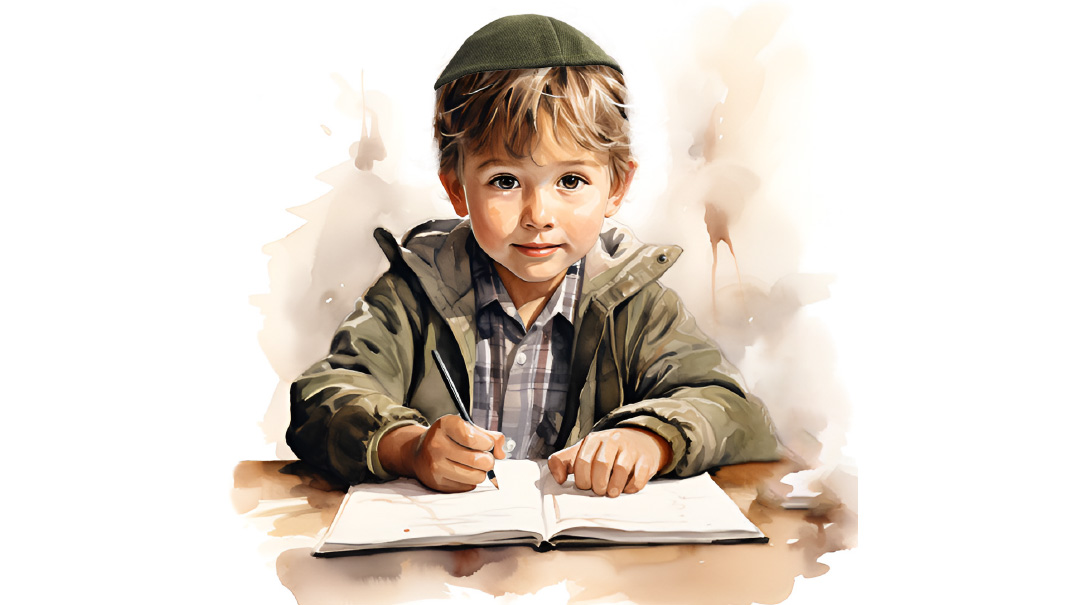
Mother’s Helper
Five years ago, I had just had baby number five, baruch Hashem, and things at home were hectic. After a couple of weeks, we were getting back to routine, and I sat down to do homework with my five-year-old preschooler. As I flipped back in his alef-beis notebook, I noticed each day’s homework since the baby’s birth was signed and had a sticker on it, meaning he had completed his homework. He hadn’t done it with me, and I peered closely at the signature: Morah Shterna Sara.
I was in awe. Thank you, Morah, for caring enough to step into Mommy’s shoes when she was unable, for caring so much for my little yingele!
Although Morah Shterna Sara wasn’t my own teacher, she has taught me such an invaluable lesson. Yes, procedures and principles are important. But sometimes, you have to set all that aside and step in to fill small but vital roles.
This simple act touched me so deeply, I’m still moved by Morah Shterna Sara’s gesture.
Chaya Mushka D.
Brooklyn, New York
A Matter of Priorities
I’LL
never forget the geshmak Rabbi Dovid Rosenberg, my second grade rebbi in Scranton Hebrew Day School in Pennsylvania, gave over to us in class. It helps that he was also my rebbi in fourth, fifth, and sixth grade, and I am still close to him. That’s one advantage of growing up in a small community.
There is one lesson he taught that colors my decisions to this day. One morning, when Rebbi walked into class, he started by telling us that a close friend of his was making a bris that morning. He had asked his rosh yeshivah if he could take off from teaching to attend.
“My rosh yeshivah said teaching Torah to children is more important,” Rabbi Rosenberg related. “He said I shouldn’t take off for the bris.”
I remember being shocked, feeling bad that he couldn’t go — and I also never forgot that lesson. Learning Torah comes first, and even my rebbi has a rebbi he consults.
I am 43 years old now, a long way from second grade, and whenever a simchah conflicts with my learning, I think twice — and sometimes I even ask a sh’eilah.
Dov Elefant
Staten Island, New York
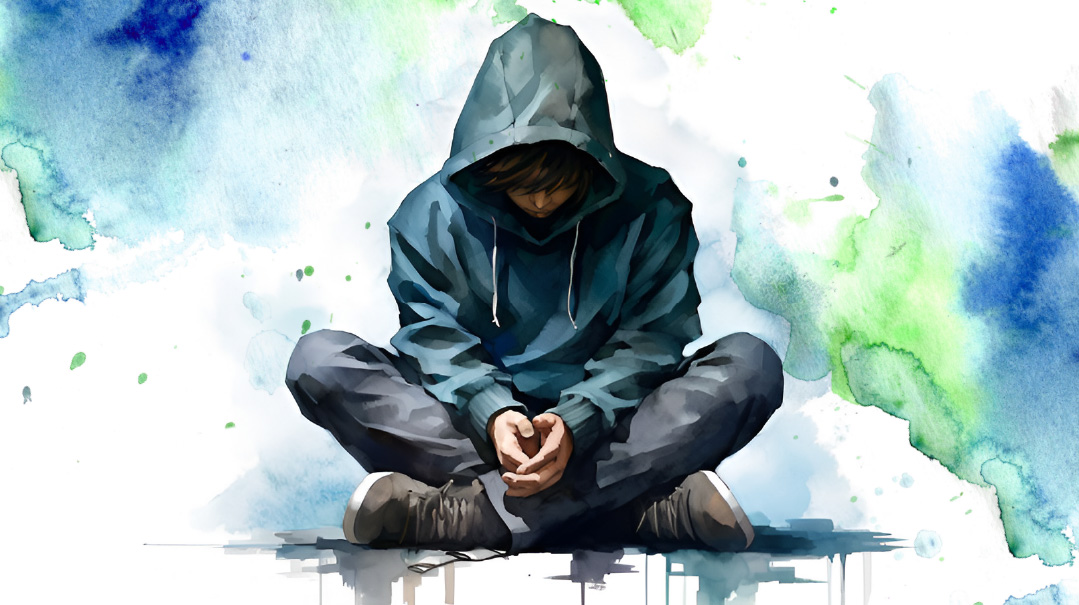
Change of Course
AS a teenager, I was always getting into trouble. Nobody, aside from my parents, thought anything good would ever come of me — especially me. I was thrown out of practically every institution I was in: yeshivah, sleepaway camp, even the out-of-town summer program after high school.
After high school I was enrolled in a yeshivah in Eretz Yisrael (to this day I have no idea how I got accepted). The Elul zeman was really long and hard, and I was still misbehaving, going out with old friends to places not fit for a ben Torah.
“This place isn’t for me,” I told my rebbi, Rabbi Chanina Geisler. “My whole shiur is learning full sedorim. I’m not cut out for this setting.”
I was honest with him, explaining that quite frankly, I had come to Israel mainly to party and for the freedom, and I told him all about my past: the trouble I’d been in, the bad things I was up to, what I thought I was all about.
“I think we’d both agree I don’t belong here, and I should go back to America,” I concluded.
Rabbi Geisler looked at me.
“Everything you just told me — that isn’t you. After three years, you’re going to be the best guy in this yeshivah.”
“Rebbi, did you hear what I spent the last two hours telling you?”
“I was listening, but I don’t care about that, because that’s not you,” Rabbi Geisler replied. “Mark my words: In three years, you’ll be the best guy in this yeshivah.”
It’s been 13 years since that conversation that changed my life. I’m still here, in kollel in Yerushalayim.
Yosef O.
Yerushalayim, Israel
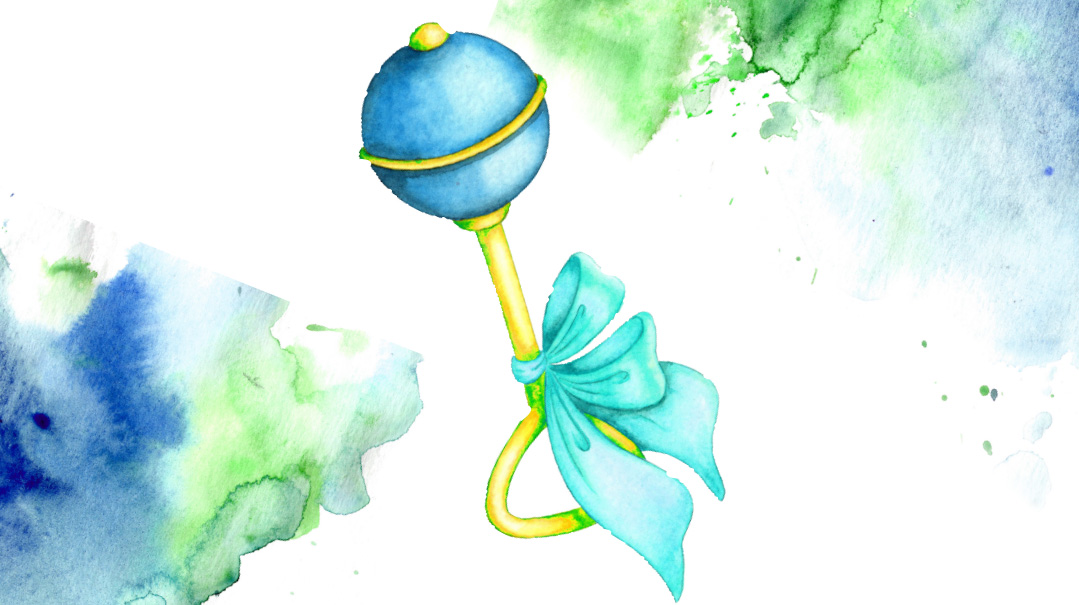
Bundle of Joy
WE
referred to our first grade teacher Mrs. Halberstam as “the lady with shiny eyes.”
Her eyes sparkled as she imparted stories and lessons and activities. Her eyes sparkled as she loved us and excited us and motivated our youthful selves. Her eyes sparkled even as she told us off and gently nudged us to do the right thing.
Our entire year was molded on the theme of happiness. We had Rebbetzin Simcha who visited our classroom. We had Simchaland, a carnival reward for our behavior. We got Simchapoints when we related stories of good deeds that made Hashem and our parents happy. Happiness was ingrained in Mrs. Halberstam, and throughout our first year of elementary school.
Even later on, as I grew older, I always wanted to emulate “the lady with shiny eyes.” How could I generate a sparkle in my eyes that motivated others in this special way?
A couple of years ago, long after I was out of grade school, my father and I drove past a house with a crowd spilling out the front door and down the street.
“It’s a big simchah,” my father said. “A double chalakah, for Mrs. Halberstam’s twins. She waited years for children.”
My childhood flashed before my eyes: Mrs. Halberstam coming in day after day, inspiring young children with such energy, happiness, and love, even while struggling in ways we seven-year-olds could never comprehend.
And yet we noticed none of that; I remember only the simchah of that year. I marveled at my innocence then — and I thought about how while teachers struggle in their personal lives, in the classroom, we’re their sole focus.
Everyone struggles. But the energy you exude, how you make other people feel through it all, that is your legacy. And it’s possible, Mrs. Halberstam proved. It’s definitely possible.
Batya Lewis
London, England

Staying Afloat
One Shabbos Parshas Noach, it was my turn to give a devar Torah at our yeshivah’s seudah. Rabbi Leibish Langer, a ninth-grade rebbi in Yeshiva Darchei Torah in Far Rockaway, New York, was spending Shabbos with us, and as I walked up to the front of the room, I accidently bumped into the table where he was sitting with his family. A full cup of soda tipped, spilling all over him.
Rabbi Langer sat there, dripping with soda, and I froze, mortified.
Suddenly, he leaned forward.
“Go up and speak!” he whispered.
“But Rebbi, you’re covered in soda! Let me get some paper towels!” I responded frantically.
“Nobody noticed,” Rabbi Langer whispered. “They think I’m just saying something to you before you start. If they see what happened, you may get teased — go up before anyone notices.”
I did as Rabbi Langer said and continued up to give my devar Torah. After I finished, I went back to apologize.
“Don’t worry! It’s parshas Noach, so I got my own mini mabul!” Rabbi Langer joked.
This is the true mark of a mechanech: someone whose first thought is the comfort and well-being of his talmidim, even when he must have been extremely uncomfortable himself. This incident serves as a constant reminder to me about how to deal with others — not to be nice only right now, but to always look out for how our actions might impact someone, even after we walk away.
Daniel Fleisher
Hillside, New Jersey
(Originally featured in Mishpacha, Issue 976)
Oops! We could not locate your form.

